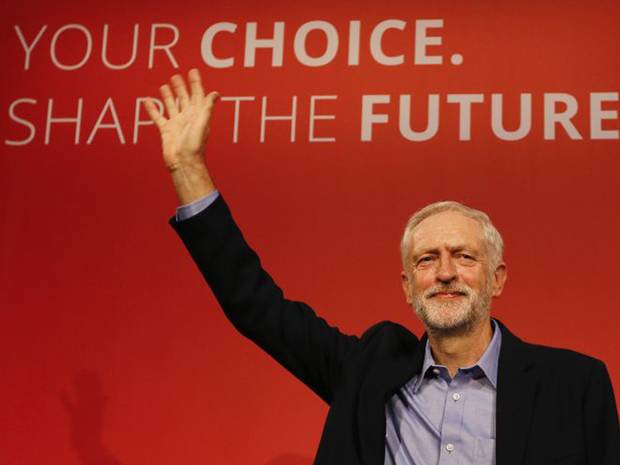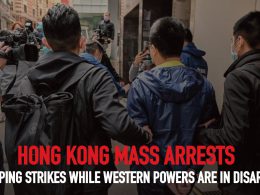The Socialist Party (CWI in England & Wales) was recently approached by New Statesman magazine to respond to the election of Jeremy Corbyn as Labour leader. Unfortunately our answers were not used in the resulting article. Below are the responses of Socialist Party general secretary Peter Taaffe to the questions asked.
Does your party view Corbyn’s rise as Labour leader as positive, negative or neutral? Why?
It is overwhelmingly positive, because it reflects the mass rejection of austerity, visible in the recent massive TUC demonstration in Manchester. This was preceded by an angry march of junior doctors in Westminster a few days before, which shows that the circle of discontent with the government’s unremitting austerity agenda has spread out from the working class to sections of the middle class.
Corbyn was elected by a landslide, which represents a rejection of the right-wing Parliamentary Labour Party and their discredited Blairite policies. This has opened up an entirely new period in British politics.
Are there elements of Corbyn’s vision for Britain that match those of your party?
Yes, his campaign has raised the idea of socialism, which is the aim of our party. This has opened up a wider discussion in the labour movement and society on how to defeat capitalism.
Which of Corbyn’s policies are in line with your own, and which differ?
There are important elements of Corbyn’s programme which we would support: the rejection of capitalist neoliberalism, nationalisation of energy companies and railways (which is enormously popular) and the abolition of tuition fees – which are a terrible burden on young people, who were the most enthusiastic supporters of his candidacy.
We oppose Trident and all nuclear weapons. Scrapping Trident and using the money to fund public services would help ease the burden of austerity from working people.
We don’t think he should backtrack on opposition to the capitalist European Union, which seeks to impose austerity on Greek workers and the rest of Europe. We will argue for an ‘Out’ vote in the referendum but on the basis of a socialist campaign and not in alliance with the far right.
We agree with much of his programme but we argue that it cannot be fully realised within the framework of capitalism and that real socialist change must be fought for. Of course, this will be resisted by Labour’s parliamentary right so Corbyn’s supporters have to organise against them.
What are the most important social and political issues for your members?
The need for a programme to solve the problems of working people in housing, education, the workplace and the struggle against the government’s dictatorial anti-trade union bill.
A crucial issue is the extra £20 billion cuts proposed for this parliament, which must be resisted. As John McDonnell said, “Austerity is a political choice not an economic necessity.”
We want Labour councils to oppose the cuts and draw up needs budgets, which would receive mass backing. The political instrument for realising this can only be done with a new mass party of the working class. There is a big element of this in the Corbyn movement. The Corbyn surge is important but it won’t last forever unless it is organised and fights for lasting change.
If the right continues to resist the will of the members for socialist ideas, then they must be taken on. The Corbyn campaign has within it, in reality, elements of a new party in the process of formation.
Have you seen members of your party jump ship to become part of Corbyn’s movement over recent weeks?
On the contrary, we are getting many people joining us because of our analysis of what Corbyn represents and the possibilities for durable change. We are an openly socialist party, and workers and young people are looking for socialist ideas. There have been no significant movements out of our party.
Do you view members joining or supporting Corbyn as a positive or negative phenomenon?
As stated above, either joining or supporting Corbyn is positive because it has opened up discussion as to how the left can participate together. The barriers between Labour and those outside are beginning to be knocked down. If the Labour Party opens up and develops into its historic traditions of a federation, then there can and will be opportunities to strengthen the Corbyn campaign, both inside and outside the Labour Party.
Would your party consider working with Corbyn or encouraging members to support his campaigns? Why or why not?
Yes, we would. The right is organising against him, so Corbyn and his supporters have to mobilise inside and outside Labour to prevent the right from neutralising or removing him.
We will join in broad campaigns at local, regional and national levels to transform the situation through a programme against austerity. If Corbyn and his supporters meet a brick wall inside Labour, they should form a new party, for the reasons explained above.
Would you define your party as radical? Is Jeremy Corbyn radical?
Yes, although ‘radical’ is a misused word; it has been used to describe reactionary Thatcherite Tories, the far right and right-wing political Islam.
We believe Jeremy is a radical socialist and so is our party. Our class needs radical socialist policies and we put these forward in our programme.












